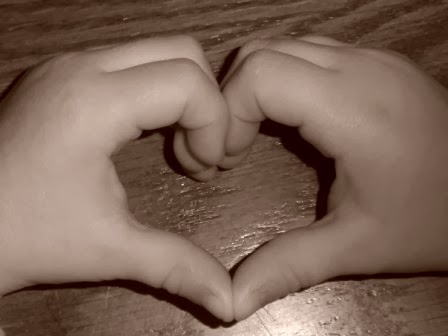In learning more about
conflict resolution and healthy expressions of disagreement, I was brought to
thinking about a lengthy conflict that I had been experiencing with my
sister-in-law over the past year.
Thankfully, our relationship is back to about 90% of what it was, but it
has been a long and very carefully traveled path.
Unfortunately, she has
suffered tremendous loss over the past four years and has also been held
responsible for an incredible amount—more than many people can bear—associated with
those losses, her teenage stepdaughter with a birth mother who consistently
lashes out at her child for choosing to live with her father, and a husband who
travels extensively for work. We had
always leaned on each other to help us through challenging times, but this
time, after one very tiny mishap that actually did not involve me directly and
was out of the hands of the party involved, I ended up being the scapegoat for
all of her pent up frustration, hurt, and sadness.
I had a very difficult
time understanding why she chose me to unleash upon; however I also value this
friendship a great deal and knew that the best thing I could offer her was
time. I was sure to keep up on how things
were going and allowed her to divulge what she chose. Sometimes it was more than others, but I felt
that it was important to make it known that I was checking up on them all and
that I cared. The majority of my
strategy for the first several months was containing the situation (The Third
Side, n.d.), so that our relationship would not be damaged beyond repair.
Slowly, over the next few
months, she began reaching out to me unprompted, which was as much of an
apology as I was ever going to get for the treatment I received, although I
would never ask her to explain herself. I feel that it was our strong bond that
let her know that I would be there no matter what, and that on some level by my
refusal to challenge her behavior I was fulfilling some inherent human need of
hers. My compassion and empathy for her
situation was allowing me to receive the critical messages she was sending and
also afford me the opportunity to forgive her actions despite their hurtful
nature (The Center for Nonviolent Communication, n.d.). It was unconsciously understood by us both
that my responding to her reaches was my acceptance of this unspoken apology.
Thankfully, our situation
has improved immensely. We have learned
to let go of what we cannot change or take back. We have worked through numerous text messages
and emails when a personal conversation may not have gone as smoothly. We have put our children and family ties
first to get us through. We are now
close again, and likely over time our relationship will progress to where it
was before. The sad truth; however, is
that there was damage that may never be forgotten. I can only hope that time will heal these
wounds and allow us to work toward a reciprocal relationship where we can more
clearly articulate our needs and feelings rather than go the slow route to
closure.
References
The Center for Nonviolent Communication. (n.d.). The center
for nonviolent communication. Retrieved from http://www.cnvc.org/
The Third Side. (n.d.). The third side. Retrieved from http://www.thirdside.org/

